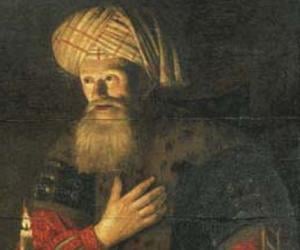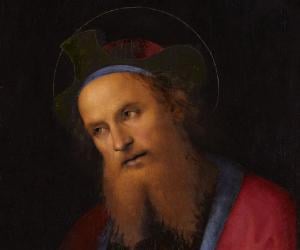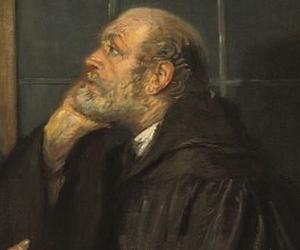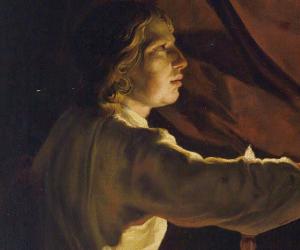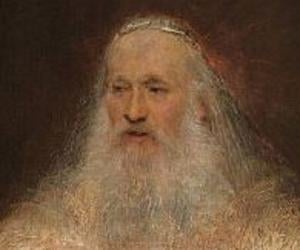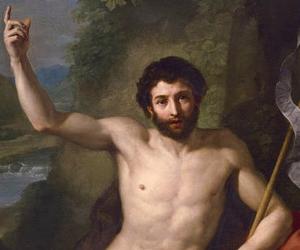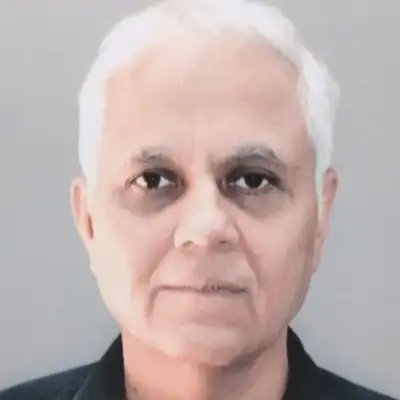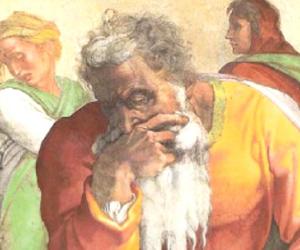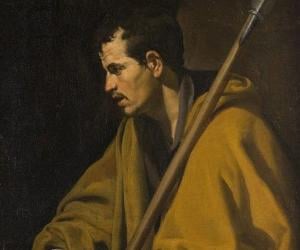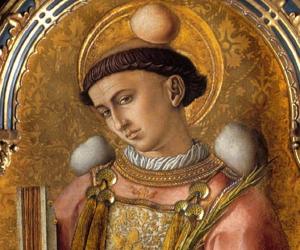Appearances in Johns Gospel
Like the tale of Lazarus, Nicodemus is not part of the tradition of the Synoptic Gospels. His story only appears in John’s retelling of the life of Jesus. John allocates over half of Chapter Three and several verses of Chapter Seven to Nicodemus. He is also featured prominently in Chapter 19.
In his first appearance, he is referred to as the Pharisee who has come to see Jesus in the night. In the sequence of events, John puts the rendezvous after the cleansing of the temple and connects it to the signs which Jesus demonstrated in Jerusalem during the Passover feast.
The conversation between Nicodemus and Jesus revolves around the concept of "born again" or "born from above". The possibility of seeing the Kingdom of God is also talked about.
Although Nicodemus wonders about the probability of being actually reborn from one's mother's womb, most theologians hold the view that Nicodemus was aware that Jesus was not talking about literal rebirth.
According to theologian Charles Ellicott, following the methods of Rabbinic dialogue, Nicodemus stresses on the improbable meaning of the words to bring out the real meaning.
Other scholars believe that the term “ἄνωθεν” (anōthen) used by him serves as a double entendre that has been used as a plot device to guide the character as well as the implied reader to a better understanding of the true meaning.
In this context, Nicodemus decides to utilize the literal over figurative meaning of anōthen (definition: from above, from a higher place) and presumes that the meaning undermines the importance of the word.
Jesus responds with surprise, stating, probably in an ironic manner, that “a teacher of Israel” does not comprehend the idea of spiritual rebirth. James F. Driscoll considers Nicodemus to be a learned and intelligent believer but apprehensive and not easily convinced by the mysteries of the new faith.
In Chapter Seven, Nicodemus asks his fellow “chief priests and Pharisees” to carefully listen and examine before passing judgement on Jesus. In response, both he and Jesus are subjected to mockery. Other Pharisees argue that no prophet could hail from Galilee. Either way, it is quite clear that he had significant power in the Sanhedrin.
During Jesus’ burial, Nicodemus provides about 100 Roman pounds (33 kg) of a mixture of myrrh and aloes. He did this despite the fact that embalming was more or less not allowed in Judaism. However, some exceptions, like in the cases of Jacob and Joseph, exist. This led the scholars to believe that Nicodemus was likely a wealthy man.
Continue Reading Below
Importance In Various Christian Traditions
Several eastern Churches as well the Roman Catholic Church honour Nicodemus as a saint. He is venerated by the eastern Churches on two different days, the Sunday of the Myrrhbearers (the second Sunday after Easter) and 2 August, the date when, according to traditions, his relics were discovered. It is said that the relics of Stephen the Protomartyr, Gamaliel, and Abibas (Gamaliel's second son) were found on the same day.
The traditional Roman Catholic liturgical calendar dates the discovery of his relics on 3 August. In the Catholic Church’s current Roman Martyrology, Nicodemus is honoured on 31 August, on the same day as Saint Joseph of Arimathea.
The Franciscan Order built a place of worship named Saints Nicodemus and Joseph of Arimathea Church in Ramla, Israel.
Influence in Art, Literature & History
In medieval paintings revolving around the Deposition, he prominently appears alongside Joseph of Arimathea, bringing the dead Christ down from the cross, often with the help of a ladder. The Middle Ages witnessed the formation of several pious legends about both of these men. Nicodemus’s legends generally link him to the monumental crosses.
He received the credits for carving both the Holy Face of Lucca and the Batlló Crucifix, apparently with angelic help. This makes these creations examples of acheiropoieta. The truth is that these carvings were created at least a thousand years after Nicodemus’ life.
The Welsh metaphysical poet, Henry Vaughan, in his poem ‘The Night’, uses Nicodemus to accentuate the night’s connection with God. In 1937, Ernst Pepping wrote an Evangelienmotette (motet on gospel text), titled ‘Jesus und Nikodemus’.
In the 18th century, the Lutherans read the gospel text of the meeting of Jesus and Nicodemus at night on Trinity Sunday. Johann Sebastian Bach wrote several cantatas that were used during the occasion. One of these cantatas, ‘O heilges Geist- und Wasserbad, BWV 165’, is the most faithful to the gospel. Composed in 1715, its libretto was written by the court poet in Weimar, Salomo Franck.
In the 16th century, during the conflicts between the Catholics and Protestants, the term "Nicodemite" was introduced in the common vernacular to indicate a person belonging to the other faith than the one prevalent in the region. Theologian John Calvin was the originator of it.
In his 1544 ‘Excuse à messieurs les Nicodemites’, theologian John Calvin wrote that Nicodemus’ veneration did not excuse him of his “duplicity”. The term’s use receded after the 18th century.
Nicodemus’ conversation with Jesus has given way to several common expressions of contemporary American Christianity, including the phrase “born again”, which is used as an alternative term to baptism by several evangelical denominations. Furthermore, John 3:16 has become a frequently-quoted verse in relation to God’s plan of salvation.
The blacks in America, after the Civil War, saw him as a source of inspiration for them, as they discarded their previous identities as slaves. According to Rosamond Rodman, the freed slaves who began living in Nicodemus, Kansas, christened the town after him. However, the National Park Service disputes this, asserting that the name of the town was inspired by an 1864 song, ‘Wake Nicodemus’ by Henry Clay Work.
Martin Luther King Jr., during his ‘Where Do We Go From Here?’ speech, given at the 11th Annual SCLC Convention in Atlanta, Georgia, on August 16, 1967, used Nicodemus as a metaphor to speak about the need of the United States to be “born again”, so the country is able to successfully deal with social and economic inequalities.
Facts About Nicodemus
Nicodemus was a member of the Sanhedrin, the Jewish ruling council, and he sought out Jesus secretly to learn more about his teachings.
He played a significant role in the burial of Jesus, providing spices and assisting Joseph of Arimathea in laying Jesus to rest in the tomb.
Nicodemus was known for his intellectual curiosity and open-mindedness, willing to engage in thoughtful discussions with Jesus despite societal expectations.
Despite his position of authority, Nicodemus showed humility and a willingness to consider new perspectives, demonstrating a depth of character beyond his public image.
His nighttime meeting with Jesus symbolizes a desire for spiritual enlightenment and a willingness to seek the truth, even in unconventional ways.
